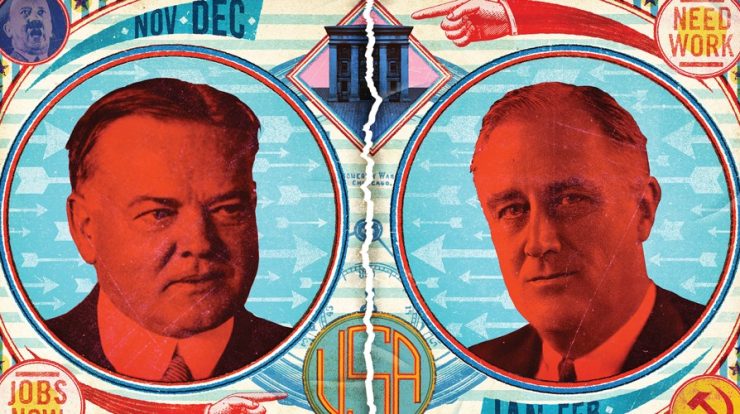Welcome to the causes of WW1 mini-Q answer key, where we delve into the labyrinth of factors that ignited the Great War. From the intricate web of alliances to the rise of nationalism, this key unlocks the secrets that led to one of history’s most devastating conflicts.
The outbreak of World War I in 1914 was a cataclysmic event that reshaped the world. Its origins lie in a complex interplay of political, economic, and social forces that had been simmering for decades.
Historical Context
The outbreak of World War I in 1914 was the culmination of decades of political tensions and diplomatic crises among the European powers. The complex web of alliances and rivalries that had developed in the late 19th and early 20th centuries created an atmosphere of mistrust and insecurity that made it increasingly difficult to resolve conflicts peacefully.
Alliances and Rivalries
- The Triple Alliance (Germany, Austria-Hungary, and Italy) was formed in 1882 to counter the growing power of France and Russia.
- The Triple Entente (France, Russia, and Great Britain) was formed in 1907 as a response to the Triple Alliance and to protect British interests in Europe.
- The Balkan Wars of 1912-1913 further strained relations between the European powers and increased tensions in the region.
Militarism and Arms Race
The years leading up to World War I witnessed an unprecedented buildup of military forces across Europe. Driven by a combination of nationalism, fear, and strategic considerations, nations engaged in a relentless arms race that significantly heightened tensions and contributed to the outbreak of war.
Military Planning and Mobilization
Military planning played a pivotal role in escalating tensions. European nations developed detailed war plans that Artikeld the deployment of troops, mobilization of reserves, and coordination of military operations. These plans, which often involved preemptive strikes and rapid mobilization, created a climate of fear and mistrust.
- Germany’s Schlieffen Plan, designed to defeat France quickly before Russia could fully mobilize, created alarm in France and Russia.
- France’s Plan XVII, which called for an immediate offensive against Germany, further increased tensions.
- Russia’s mobilization plans, which were perceived as a threat to Germany, prompted Germany to declare war on Russia in 1914.
Nationalism and Imperialism
The late 19th and early 20th centuries witnessed a surge in nationalist sentiments and imperial ambitions among European powers. This fueled a sense of national pride, territorial expansionism, and competition for global dominance.
Nationalism, the belief in the superiority and distinctiveness of one’s nation, became a potent force. European countries sought to assert their national identities and expand their territories, leading to territorial disputes and conflicts.
Imperialism
Imperialism, the policy of extending a nation’s authority by territorial acquisition or political and economic control, further intensified tensions. European powers competed for colonies in Africa, Asia, and the Americas, driven by the desire for raw materials, markets, and strategic advantage.
Economic Competition
Economic competition also played a role. The Industrial Revolution had created new industries and markets, leading to intense rivalry among European countries for economic dominance. This competition extended to the acquisition of colonies, which provided access to resources and labor.
Colonial Expansion
Colonial expansion brought European powers into contact with each other in various parts of the world. This led to territorial disputes, conflicts over resources, and tensions between rival empires. The scramble for colonies contributed to a heightened sense of nationalism and imperialism, fueling the arms race and ultimately setting the stage for the outbreak of World War I.
Economic Factors
Economic pressures and rivalries played a significant role in the outbreak of World War I. The Industrial Revolution had led to a surge in production and trade, but it also created intense competition among nations for markets, resources, and colonies.
Industrialization led to a rapid increase in the production of goods, which in turn led to a search for new markets to sell these goods. This competition for markets led to tensions between countries, as each country sought to protect its own economic interests.
Trade Competition
The growth of industrialization led to increased trade competition between nations. Each country wanted to sell its own goods and services, and this led to a scramble for colonies. Colonies provided access to raw materials and new markets, which were essential for economic growth.
The competition for colonies led to tensions between countries, as each country sought to expand its empire. This competition was particularly intense in Africa and Asia, where there were many colonies to be had.
Resource Scarcity
The Industrial Revolution also led to a scarcity of resources. The demand for raw materials, such as coal and iron, grew rapidly, and this led to competition between countries for access to these resources.
The scarcity of resources led to tensions between countries, as each country sought to secure its own supply of raw materials. This competition was particularly intense in Europe, where there were few natural resources.
The Balkan Powder Keg
The Balkan region, a peninsula in southeastern Europe, was a hotbed of ethnic and political tensions in the early 20th century. The region was home to a diverse population of Serbs, Croats, Bosnians, Albanians, and other ethnic groups, each with their own aspirations for independence or autonomy.
The region was also a crossroads of major European powers, including Austria-Hungary, Russia, and the Ottoman Empire, who competed for influence and control.
Assassination of Archduke Franz Ferdinand
One of the most significant events in the lead-up to World War I was the assassination of Archduke Franz Ferdinand, heir to the Austro-Hungarian throne, in Sarajevo on June 28, 1914. The assassination was carried out by a Serbian nationalist named Gavrilo Princip, who was part of a group that sought to unite all South Slavic peoples into a single independent state.
The assassination sparked outrage in Austria-Hungary, which saw it as an act of Serbian aggression. Austria-Hungary issued an ultimatum to Serbia, demanding that it suppress anti-Austrian activities and allow Austrian officials to investigate the assassination. Serbia refused to fully accept the ultimatum, and Austria-Hungary declared war on Serbia on July 28, 1914.
Diplomatic Failures
Diplomatic efforts to resolve the Balkan crisis and prevent war were hampered by a series of communication breakdowns and miscalculations.
Miscommunication and Misperceptions
One major issue was miscommunication between the great powers. Germany and Austria-Hungary believed that Russia would not intervene in a conflict between them and Serbia, while Russia believed that Germany would not support Austria-Hungary in a war against Russia. This misperception led to a series of diplomatic blunders that escalated the crisis.
Failure of Diplomacy
Another factor that contributed to the failure of diplomatic efforts was the unwillingness of the great powers to compromise. Each power had its own interests and ambitions in the Balkans, and they were unwilling to make concessions to the others.
This lack of flexibility made it impossible to reach a diplomatic solution to the crisis.
Missed Opportunities, Causes of ww1 mini-q answer key
There were several missed opportunities to prevent the outbreak of war. In July 1914, the British government proposed a conference of the great powers to discuss the Balkan crisis. However, Germany and Austria-Hungary rejected the proposal, fearing that it would give Russia too much influence in the region.
Immediate Causes: Causes Of Ww1 Mini-q Answer Key
The immediate events leading to the outbreak of World War I unfolded in a rapid succession, with each action and reaction escalating the conflict.
Timeline of Immediate Events
June 28, 1914
Archduke Franz Ferdinand of Austria, heir to the Austro-Hungarian throne, is assassinated by a Serbian nationalist in Sarajevo.
July 23, 1914
Austria-Hungary issues an ultimatum to Serbia, demanding an investigation into the assassination and punishment of those responsible.
July 25, 1914
Serbia accepts most of the ultimatum’s demands but rejects those that would infringe on its sovereignty.
July 28, 1914
Austria-Hungary declares war on Serbia after Serbia’s partial acceptance of the ultimatum.
July 29, 1914
Russia, Serbia’s ally, begins to mobilize its army in support of Serbia.
July 30, 1914
Germany, Austria-Hungary’s ally, declares war on Russia.
July 31, 1914
Germany declares war on France, Russia’s ally.
August 1, 1914
Germany invades Belgium, which prompts Great Britain, Belgium’s guarantor, to declare war on Germany.
Ultimatums, Declarations of War, and Military Mobilizations
The ultimatum issued by Austria-Hungary to Serbia was a key factor in escalating the conflict. Serbia’s partial acceptance of the ultimatum, but not the demands that infringed on its sovereignty, led to Austria-Hungary declaring war. This triggered a chain reaction of declarations of war and military mobilizations by other European powers, as alliances and commitments came into play.The
rapid military mobilizations by Russia, Germany, and France created a sense of urgency and heightened tensions. The mobilization of armies on all sides contributed to the outbreak of war by making it increasingly difficult to find a diplomatic solution to the crisis.
FAQ Explained
What were the main causes of World War I?
The main causes of World War I were the complex web of alliances, the rise of nationalism, militarism, imperialism, economic factors, the Balkan Powder Keg, and diplomatic failures.
What role did the assassination of Archduke Franz Ferdinand play in the outbreak of war?
The assassination of Archduke Franz Ferdinand was the immediate trigger that set off a chain of events leading to the outbreak of war. However, it was only one of many factors that had been building up for years.
Could World War I have been prevented?
It is impossible to say for certain whether World War I could have been prevented. However, there were a number of diplomatic efforts that could have been made to ease tensions and prevent the outbreak of war.

